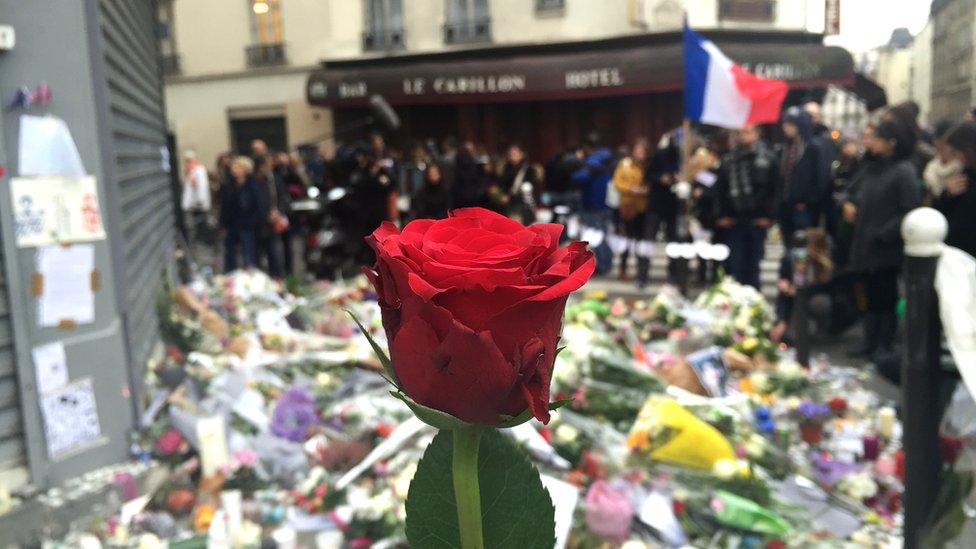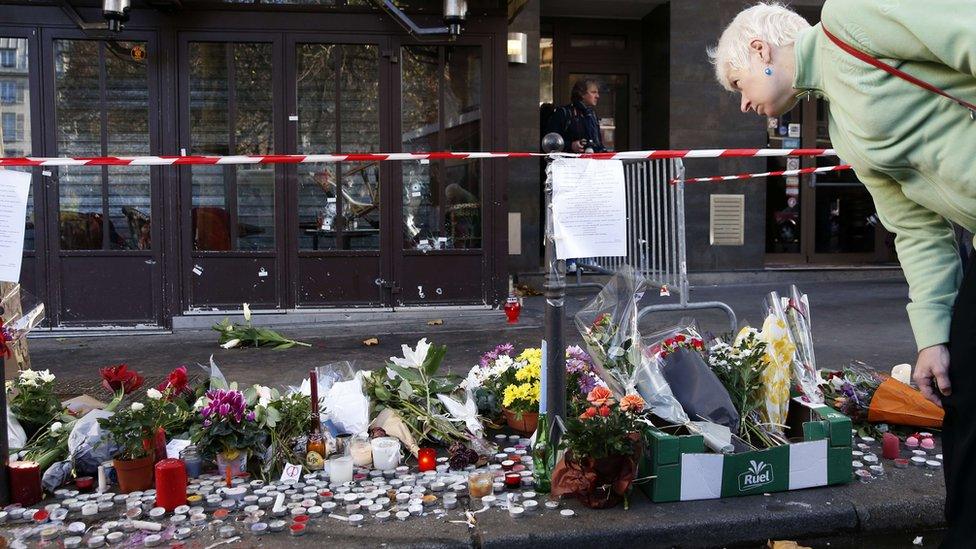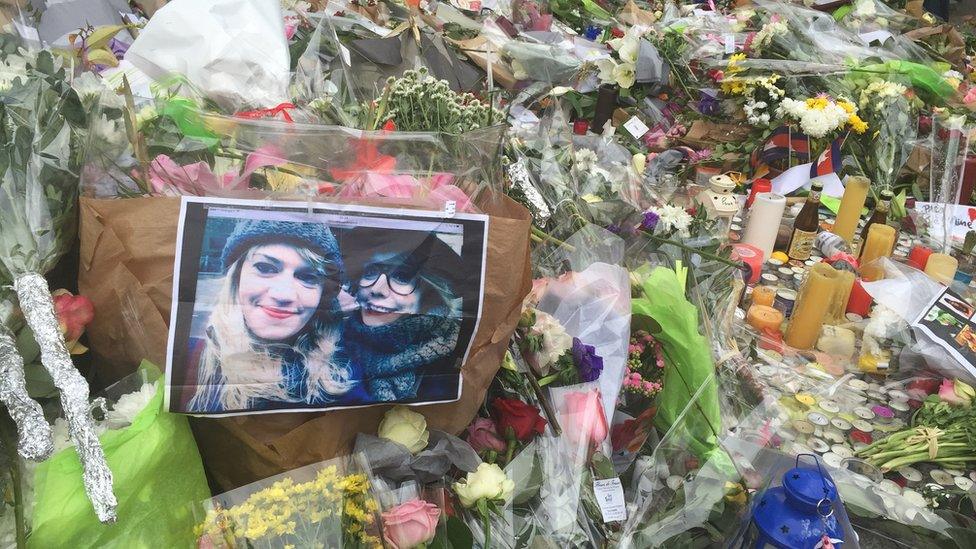Paris attacks: Grief, anger and defiance on city streets
- Published

Flowers and tributes have been left outside Le Carillon bar in Paris
The sense of grief is palpable in pockets of Paris. The horrible reality hangs in the air, near the bars, restaurants and concert hall where bullets were sprayed at random, and a group of suicide bombers killed themselves and others.
The traffic and familiar hustle-and-bustle continues. But the mountains of flowers, messages, flags and candles speak of a tragedy that is still sinking in.
Paris-born Christos, 33, believes "in some way" the attacks have changed the city forever.
"It's the kind of thing that leaves a scar," he told me amid an atmosphere of quiet reflection outside Le Carillon bar and the Petit Cambodge restaurant where 15 people were gunned down.
"We have to stay united and be stronger than ever."
Bewilderment is everywhere in this city right now. No-one can answer the simple question, why?
With a Greek mum and a Congolese dad, Christos epitomises the cosmopolitan identity of this city.
"I was born here, like the guys who did this. That's why we don't understand what happened to them to turn them into this. This is not religion. This is barbarism. This is war."
"When you're a human being you can't understand such things," said 27-year-old Kim Samuelson, whose over-riding emotion is sadness.

The Bonne Biere was one of the venues targeted in Friday's attacks
But some, like Marcel, are angry.
He walked home with his girlfriend, past the Cafe Bonne Biere, on the corner of his street just minutes before it and the Casa Nostra pizzeria opposite were sprayed with bullets.
"I am pessimistic," he says. "For me, it is the beginning of a war."
In this corner of Paris five people were killed and eight were badly injured.
At the shrine, which now covers the pavement by two normally bustling venues, Lea Albertini stood, like so many others have, staring quietly at the pile of flowers.
She spent the first two days shut in her friend's home, further away from this, her neighbourhood, which on Friday came under attack.
"I don't feel safe, despite all the soldiers on the street," she told me.
But Karim, who did not cancel a planned visit to Paris from his home city of Bordeaux in the south, was adamant that life must go on.
"If we stop living, these barbarians feel like they were right," he said.
Raphaelle Oudart epitomises the sense of defiance that Parisians are becoming famed for.
By day she works in a bank, by night she is a volunteer paramedic with the Order of Malta.
On Friday night she was one of the first to arrive at the Bataclan, while gunshots still rang out and the attackers were still at large.

The attacks have left the people of Paris in shock
A scene reminiscent of a war zone confronted Raphaelle and her colleagues, who battled to save the lives of those wounded in the carnage.
Like many others in this city she then "lived the whole weekend" with the fear that her relatives or friends could have been among the victims.
But she believes Paris will bounce back.
"Paris will always be Paris, whatever happens," she told me as she came back to the Bataclan for the first time since the attacks.
"Parisians are hurt in their heart. It doesn't mean we forget, but life will go on as we don't want them to think they are right."